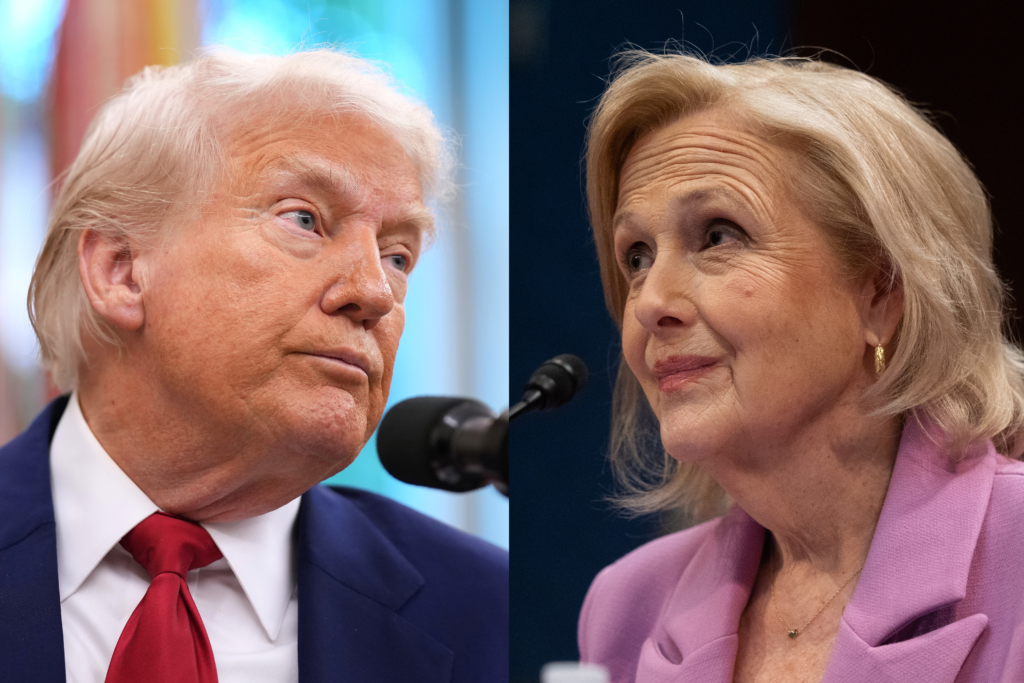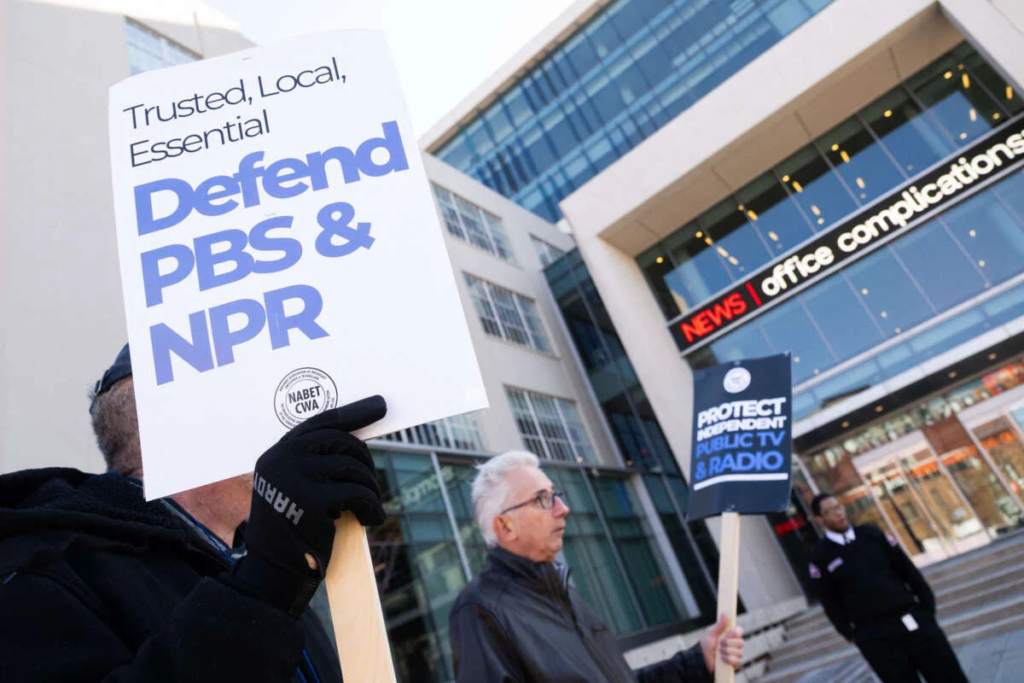President Trump’s push to cut funding for public broadcasters NPR and PBS has sparked legal and political controversy. The move, announced as part of the administration’s broader budget restructuring efforts, is now being challenged in court by media advocates, lawmakers, and constitutional experts. The outcome could reshape the future of public broadcasting in America.
What Led to the Defunding Proposal?
The controversy began when the Trump administration proposed eliminating federal funding for the Corporation for Public Broadcasting (CPB), the primary financial supporter of National Public Radio (NPR) and the Public Broadcasting Service (PBS).

The administration argued that taxpayer dollars should not be used to support media outlets, especially when “alternative and private media options are widely available.” The budget proposal claimed that federal support for NPR and PBS was “unnecessary in the digital age.”
However, critics argue that public media plays a vital role in educating underserved communities, providing unbiased news, and ensuring access to quality children’s programming like Sesame Street.
Legal Challenges and the Basis for the Lawsuits
Almost immediately after the proposal was made public, several media watchdogs and legal advocacy groups filed lawsuits claiming the plan violated the First Amendment and the Public Broadcasting Act of 1967.
The First Amendment argument centers around concerns that the government is attempting to suppress press freedom and editorial independence. Plaintiffs allege that by targeting NPR and PBS, both of which are known for their investigative journalism and educational content, the administration is infringing on the media’s right to operate without political interference.
The Public Broadcasting Act, signed into law in 1967, was designed to create and protect non-commercial broadcasting in the United States. Legal experts argue that the act obligates the federal government to support and uphold public media as a public good.
Read the full text of the Public Broadcasting Act of 1967.
Voices of Opposition: Bipartisan Pushback
Interestingly, opposition to the defunding effort is not coming from Democrats alone. Several Republican lawmakers from rural districts have voiced concerns, noting that NPR and PBS serve as essential sources of news and education in communities where commercial media is scarce.
Senator Lisa Murkowski (R-Alaska) stated, “For many in my state, PBS is the only available source for reliable news and children’s educational programming. Cutting that off does more harm than good.”
A coalition of 34 state attorneys general has also signed a letter urging Congress to block the proposal, citing public interest concerns and constitutional protections.
Trump Administration’s Defense
In response to the backlash, the White House has defended its proposal, claiming the goal is to reduce government spending and encourage private-sector innovation.

White House Press Secretary Sarah Matthews stated, “We are not silencing anyone. We are simply asking why the federal government is still funding media in an era when there are thousands of news sources.”
The administration also emphasized that NPR and PBS receive less than 15% of their total budgets from federal sources, suggesting that these organizations can sustain themselves through donations, sponsorships, and local fundraising efforts.
What Could Happen If Funding Is Cut?
If the proposal succeeds, local stations are likely to suffer the most. While national NPR and PBS operations may continue with reduced services, smaller, rural stations that rely heavily on CPB grants could be forced to shut down.
That means millions of Americans may lose access to trusted educational programming, cultural content, and emergency broadcasts. Many schools and low-income families depend on PBS programs for learning, especially in areas with limited internet access.
Educational advocates have warned that the impact will be most deeply felt by underserved communities, where public broadcasting provides critical services.
The Bigger Picture: Press Freedom and Public Interest
Legal experts believe that this case is more than just a fight over budgets — it’s a test of the U.S. government’s commitment to independent journalism and equal access to information.
“The government doesn’t get to pick and choose which media outlets it supports based on political preference,” said Jane McAllister, a constitutional law professor at Yale University. “This effort has chilling implications for freedom of the press.”
This isn’t the first time public broadcasting has faced funding threats, but the legal challenges tied to this administration’s actions could set a lasting precedent. If courts rule that targeting public media violates the First Amendment, it could establish stronger protections against political interference in news and educational broadcasting.
Conclusion: What Comes Next?
The lawsuits are moving through federal courts, and injunctions have been filed to prevent any immediate funding cuts. A congressional vote on the budget proposal is expected within the next two months. In the meantime, NPR and PBS have ramped up public awareness campaigns to rally support.
Supporters of public broadcasting are urging Americans to contact their representatives and stress the value of non-commercial, educational media. Whether the courts side with the Trump administration or with the defenders of public media, the outcome of this legal fight will have a lasting impact on how the nation values and funds independent journalism.
Also Read – Trump Calls Out Harvard Over Shocking Math Program Revelation






